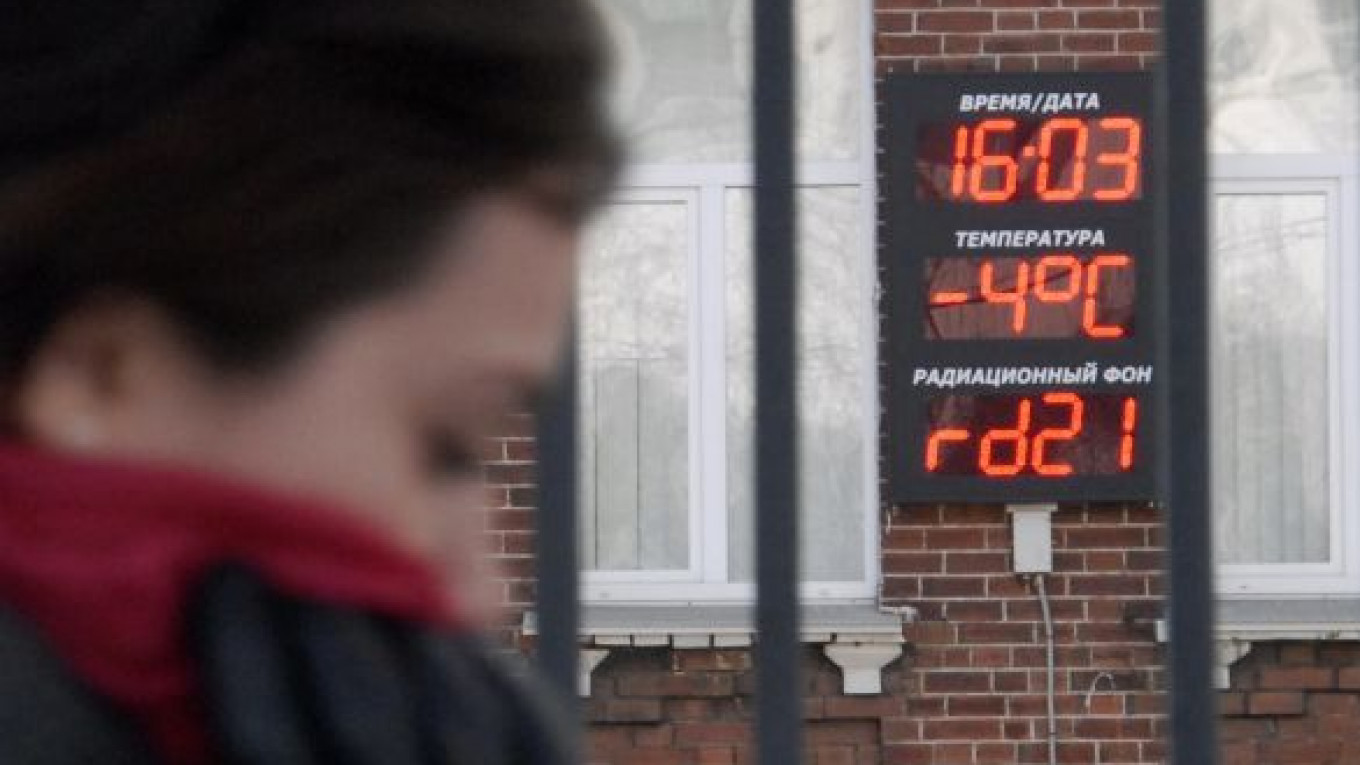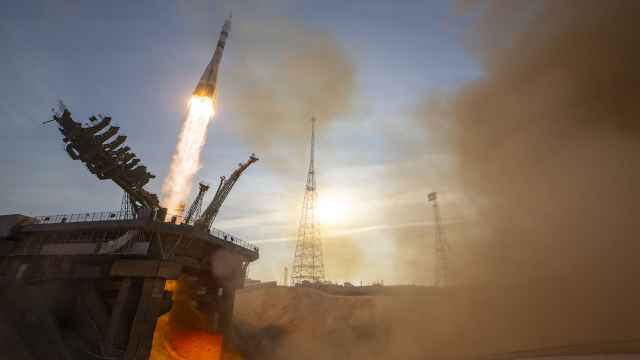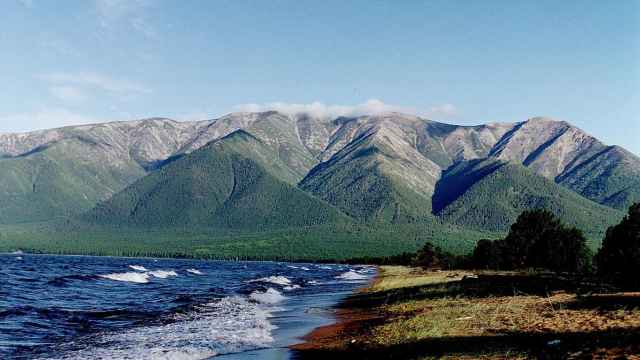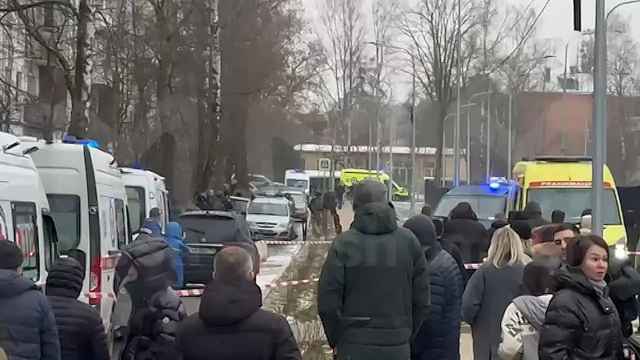VLADIVOSTOK — Widespread fear that Japan's nuclear crisis could send radioactive fallout Russia's way is proving a nightmare to public officials in the Pacific regions but a bonanza for merchants selling everything from facemasks and iodine to vodka and wine.
Residents also are stocking up on dosimeters, a device for measuring the total absorbed dose from exposure to ionizing radiation, and seaweed, which contains natural iodine.
Health experts are insisting the radiation threat is minimal and warning that an excessive intake of iodine is not only useless but could even be harmful.
No increase in exposure levels in the region has been reported since the tsunami-damaged Fukushima Daiichi nuclear power plant began releasing radiation. The plant is about 800 kilometers from Vladivostok.
Even if a reactor at Fukushima explodes, "there is no danger for Russia's Far East," Rosatom head Sergei Kiriyenko told Prime Minister Vladimir Putin on Tuesday. Prevailing winds would likely send fallout from a blast out over the Pacific Ocean.
On Wednesday, more assurances were forthcoming. Alexander Ivelsky, an Emergency Situations Ministry spokesman in Sakhalin, immediately north of Japan, insisted "there is nothing to be afraid of" and that Russians should trust official announcements.
Alexander Molochkov, dean of the physics department at the Far Eastern Federal University in Vladivostok, said "Russian nationals should feel completely safe."
But many Russians are wary of official assurances, apparently remembering the secrecy and dissembling that followed the Chernobyl nuclear power plant explosion in 1986.
"Some people are just freaking out," Pyotr Laduzhin, a computer engineer in Vladivostok, told The Associated Press in a message. "It's an old Soviet fear of a nuclear attack."
He added that he has been measuring radiation using a meter he bought in 2007, shortly after North Korea tested its nuclear weapons.
"I feel safer when I see with my own eyes that radiation is normal," Laduzhin said.
Companies dealing in dosimeters, iodine and facemasks are stirring fears to boost sales, said Olga Shekhovtseva, an Emergency Situations Ministry spokeswoman in the Primorye region, whose capital is Vladivostok. "It is a pity that certain businessmen are trying to profit on the situation," she said.
Clerks at pharmacies throughout Vladivostok say they sold out all medical drugs containing iodine, as well as facemasks and gauze.
But a representative of Primtekhnopolis, which sells radiation gauges costing upward of $100, claimed that it had been actively trying to dissuade customers from panic purchases.
"We're trying to talk them out of buying them, saying they don't need them, but it's all to no avail," Vitaly Aldanov said. "They're buying them anyway."
National media, meanwhile, reported a spike in sales of vodka and red wine on Sakhalin.
Some Russians believe that by consuming vodka they can stave off ills, while red wine is considered to increase red blood cell production, boosting the immune system. Soviet authorities recommended red wine to boost the body's defenses against radiation following the Chernobyl disaster.
But others favor fleeing altogether. Airlines say they have sold out of tickets from the Far East to Moscow and other parts of western Russia.
"I am going to send my wife and children to their relatives in Voronezh," Vladivostok resident Dmitry Starichenko said. "I can't leave myself because of work, but I'm worried about them."
There is calm in some quarters, though.
"I am not afraid," said Mikhail Glumov, a computer network administrator in Vladivostok. "This is nonsense blown up by the media — just like swine flu or atypical pneumonia."
A Message from The Moscow Times:
Dear readers,
We are facing unprecedented challenges. Russia's Prosecutor General's Office has designated The Moscow Times as an "undesirable" organization, criminalizing our work and putting our staff at risk of prosecution. This follows our earlier unjust labeling as a "foreign agent."
These actions are direct attempts to silence independent journalism in Russia. The authorities claim our work "discredits the decisions of the Russian leadership." We see things differently: we strive to provide accurate, unbiased reporting on Russia.
We, the journalists of The Moscow Times, refuse to be silenced. But to continue our work, we need your help.
Your support, no matter how small, makes a world of difference. If you can, please support us monthly starting from just $2. It's quick to set up, and every contribution makes a significant impact.
By supporting The Moscow Times, you're defending open, independent journalism in the face of repression. Thank you for standing with us.
Remind me later.






